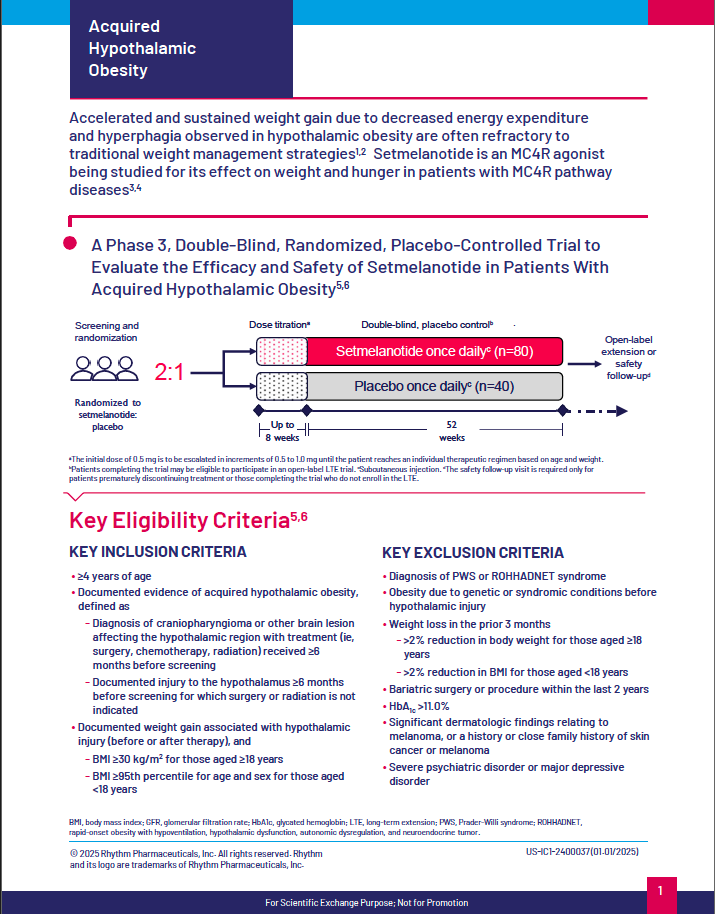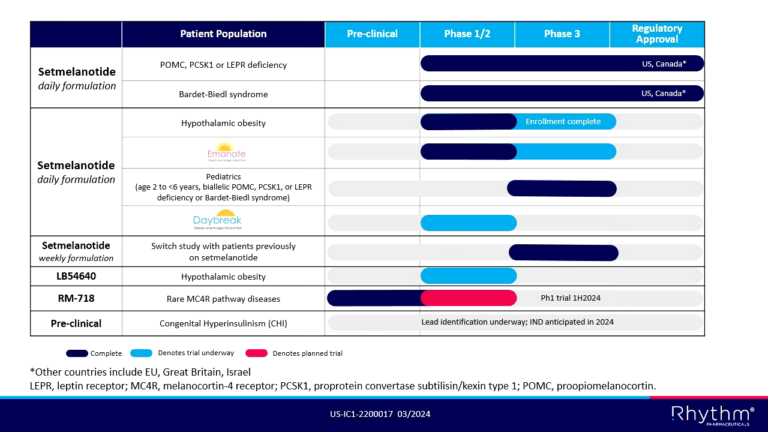Not all obesity is the same: explore rare melanocortin-4 receptor (MC4R) pathway diseases
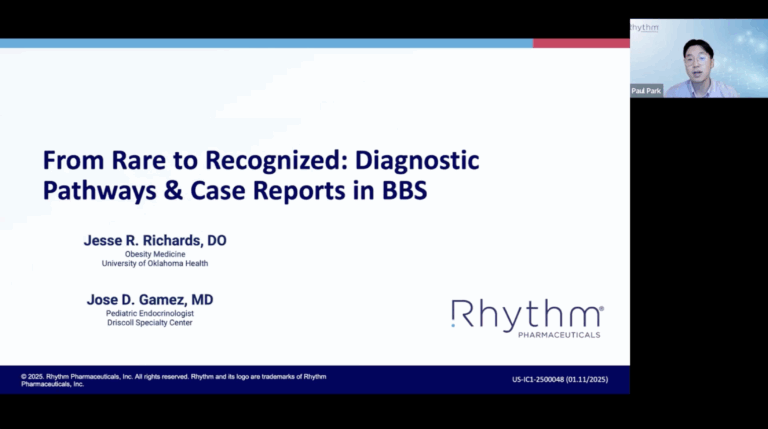
From Rare to Recognized: Case Reports and Diagnostic Pathways in BBS
Learn more about the role of MC4R pathway impairment in the development of obesity in Bardet-Biedl syndrome (BBS), key clinical characteristics a patient with BBS may present with and diagnostic considerations through patient case studies.
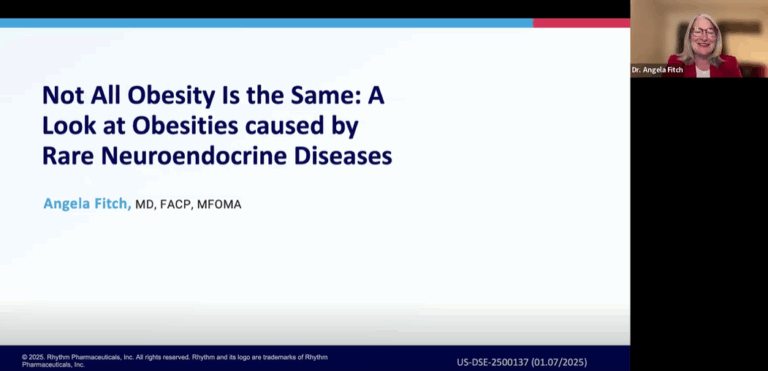
Not All Obesity is the Same – A Look at Obesities Caused by Rare Neuroendocrine Diseases Webinar
Learn about the distinctive features of monogenic obesity, syndromic obesity and acquired hypothalamic obesity compared to general obesity, and how patients with rare forms of obesity can be identified, evaluated and diagnosed in the clinic.
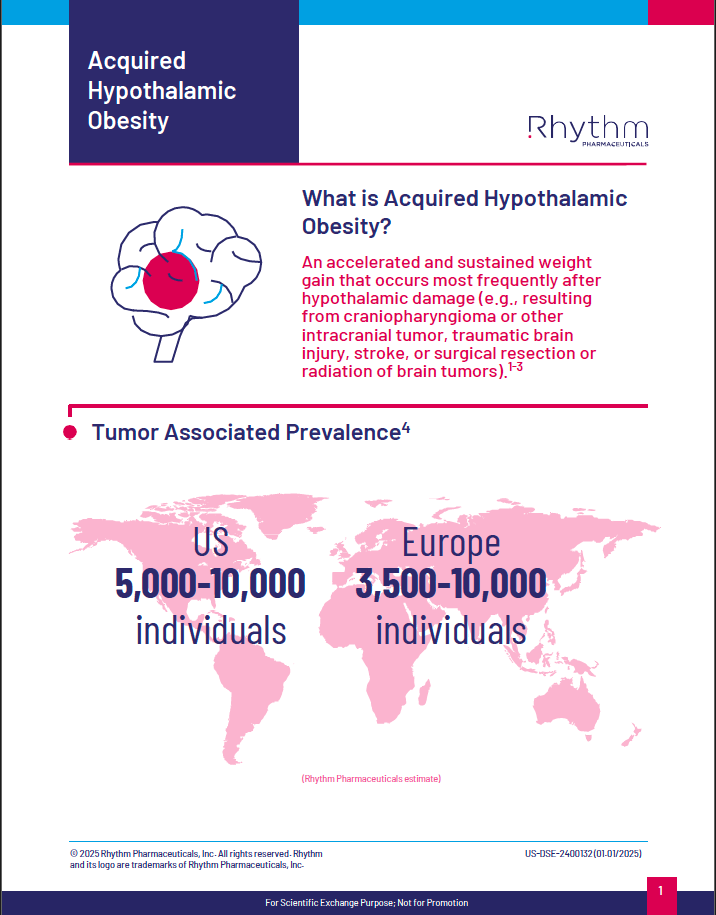
Acquired hypothalamic obesity
Learn more about acquired hypothalamic obesity, a disease characterized by accelerated and sustained weight gain that occurs most frequently after hypothalamic injury, and its unique pathophysiology involving impaired MC4R pathway signaling leading to dysregulated energy balance.
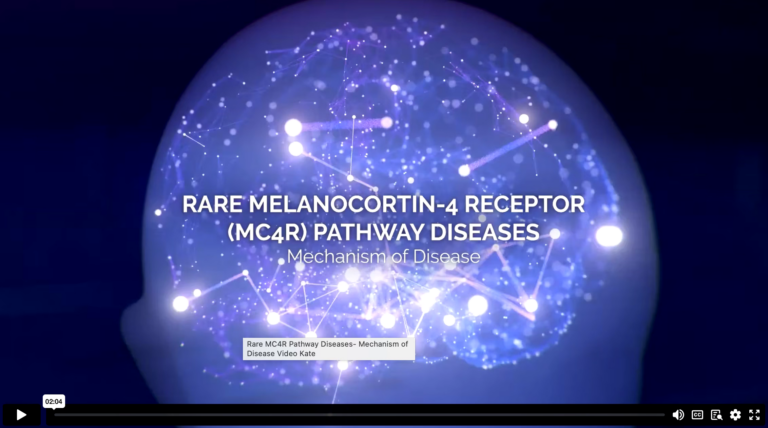
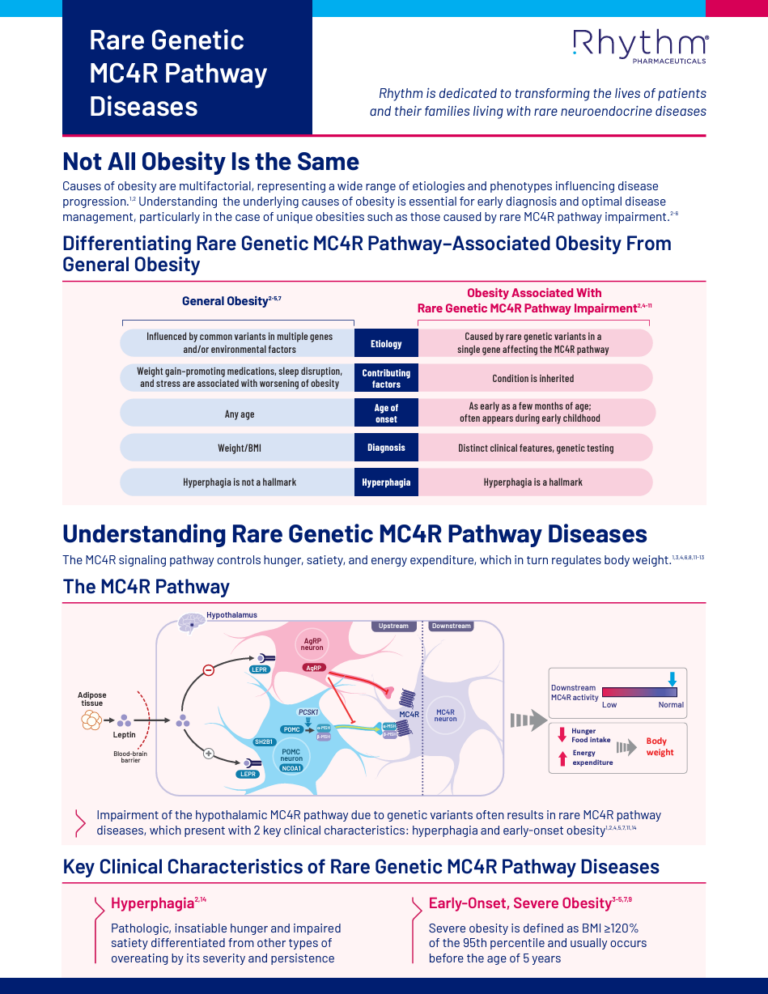
MC4R pathway-associated obesities
Learn about the melanocortin-4 receptor (MC4R) pathway that regulates energy balance, the clinical characteristics of several rare genetic diseases, and when to consider genetic testing.
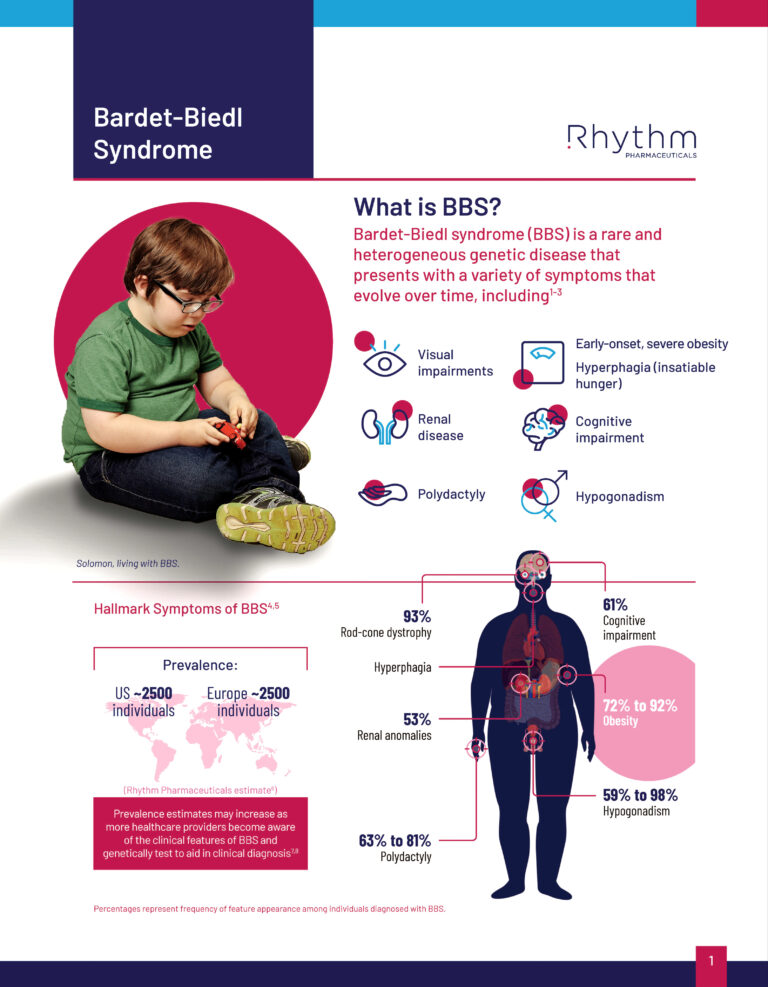
Bardet-Biedl syndrome (BBS)
Learn about the clinical features, prevalence, pathophysiology, and diagnosis of Bardet-Biedl syndrome, a rare genetic disease.
Understanding and identifying Bardet-Biedl syndrome (BBS)

From Rare to Recognized: Case Reports and Diagnostic Pathways in BBS
Learn more about the role of MC4R pathway impairment in the development of obesity in Bardet-Biedl syndrome (BBS), key clinical characteristics a patient with BBS may present with and diagnostic considerations through patient case studies.

Bardet-Biedl syndrome (BBS)
Learn about the clinical features, prevalence, pathophysiology, and diagnosis of Bardet-Biedl syndrome, a rare genetic disease.
Not all hunger is the same: understanding and identifying hyperphagia
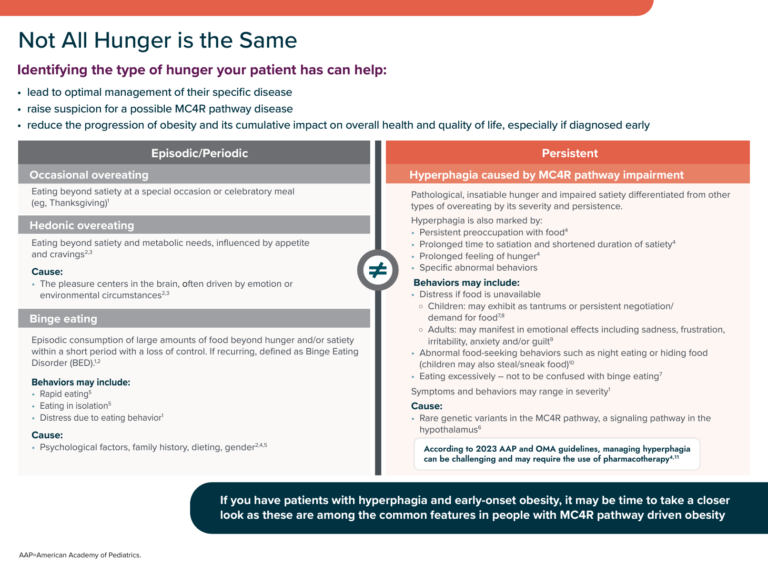
Hyperphagia questionnaire
Learn how to identify hyperphagia in your patients with rare MC4R pathway diseases, and to determine if/how it is impacting their daily lives.
Rhythm Pharmaceuticals: who we are
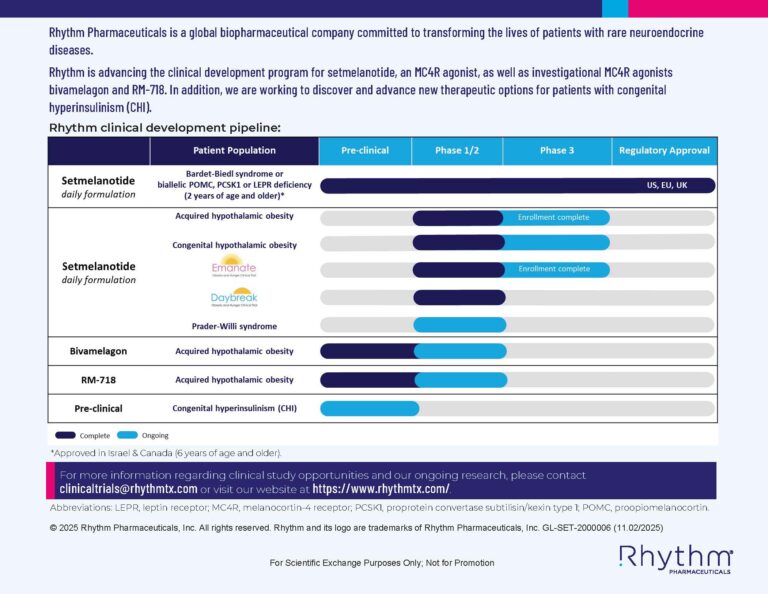
About Rhythm Pharmaceuticals
Learn about Rhythm’s dedication to pioneering research and development of treatments for rare MC4R pathway diseases and our clinical development pipeline.
Genetic testing: uncovering obesity-associated gene variants
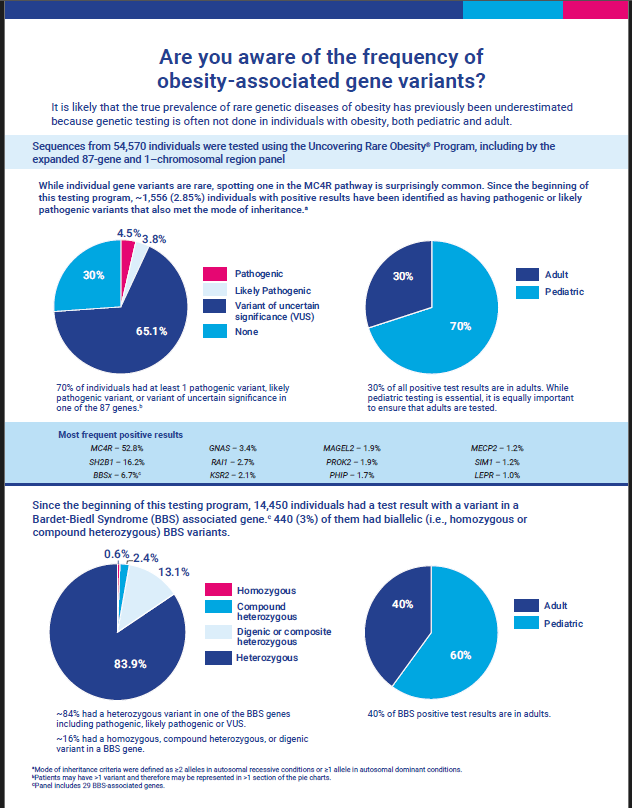
Frequency of Obesity-Associated Gene Variants From Uncovering Rare Obesity® Genetic Testing Program
Learn about the frequency of obesity-associated gene variants uncovered in Rhythm’s Uncovering Rare Obesity® testing program
Uncovering Rare Obesity®
Learn about Uncovering Rare Obesity® program, a genetic testing program that helps identify rare genetic diseases of obesity. https://uncoveringrareobesity.com
Discover more
Expand your knowledge of rare genetic variants and their role in MC4R pathway signaling.
BBS, Bardet-Biedl syndrome; LEPR, leptin receptor gene; MC4R, melanocortin-4 receptor; NCOA1, nuclear receptor coactivator 1 gene (also referred to as SRC1); POMC, proopiomelanocortin gene; PCSK1, proprotein convertase subtilisin/kexin type 1 gene


